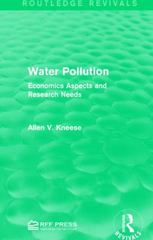Question
There are only two fishermen, Akira and Toshihiko, who catch fishes on a small lake. Let hA be Akira's working hours and let hT be
There are only two fishermen, Akira and Toshihiko, who catch fishes on a small lake. Let hA be Akira's working hours and let hT be Toshihiko's working hours. Also, let H be the total working hours (that is, ). Each of them catches (30-H) fishes per hour but needs to pay 6 fishes per hour as a charge to a fisheries cooperative association, which purchases fishes from Akira and Toshihiko. Each of them tries to maximize the number of fishes he finally gets (that is, after he pays the charge)
If Akira and Toshihiko choose their working hours independently, how many hours does each of them work? How many fishes does each of them gets finally?
If Akira and Toshihiko work together and coordinate the total working hours (that is, they choose H), how many hours do they work in total? How many fishes do they gets finally in total?
Are their working hours you derived in question a. Pareto optimal? Explain why.
Suppose that the fisheries cooperative association wants them to work for the same amount of time you derived in question b. However, Akira and Toshihiko have quarreled and can no longer coordinate the total working hours. Also, there is no way to oblige them to work for pre- determined hours (for example, monitoring them is not effective). Can the fisheries cooperative association make them work for the same amount of time you derived in question b.? Explain why. Hint: you might want to consider the externality.
Step by Step Solution
There are 3 Steps involved in it
Step: 1

Get Instant Access to Expert-Tailored Solutions
See step-by-step solutions with expert insights and AI powered tools for academic success
Step: 2

Step: 3

Ace Your Homework with AI
Get the answers you need in no time with our AI-driven, step-by-step assistance
Get Started


